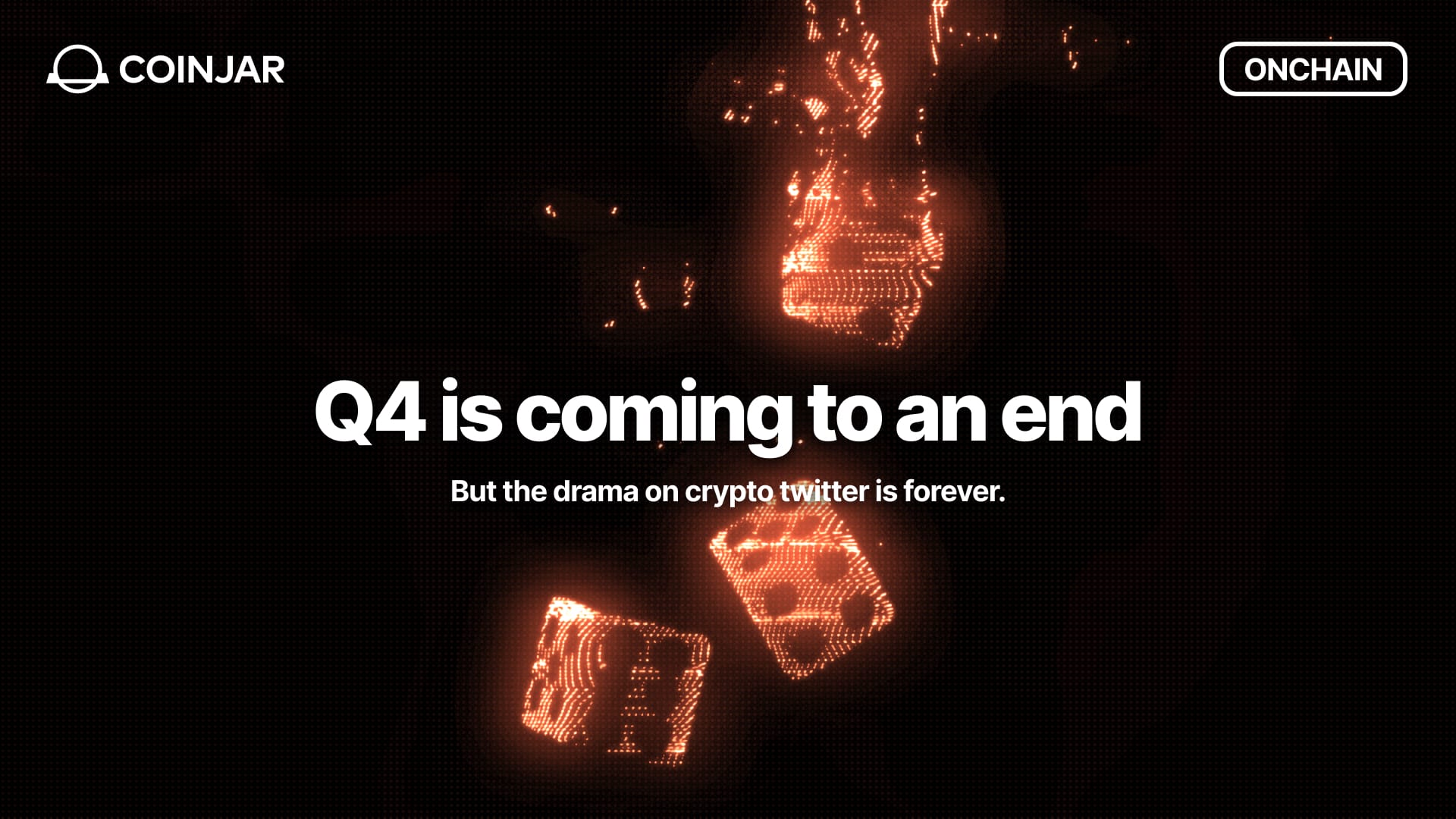Offchain: In The Big Leagues
January 10, 2024
Share this:

The Bitcoin ETF is a watershed moment – and one that brings with it a whole host of new opportunities and risks.
For the last few weeks, the question of whether the SEC is going to approve this god damn Bitcoin ETF has become a black hole for the industry’s attention. The whole cryptosphere was stuck in stasis while we waited for Gary G to decide whether we were worthy of his attention or not.
Potentially the biggest thing to ever happen to crypto and I’m already tired of hearing about it. Please, someone shill me your token that’s going to revolutionise pizza delivery, I beg of you. What’s that? You want to explain how proto-danksharding works in excruciating detail? I’ll take it.
But look, there’s no denying it: the ETF is epochal. And it is game changing. And it is the moment that crypto becomes impossible to ignore. So, fine, let’s talk about this god damn Bitcoin ETF.

The SEC done bad
In the annals of “You couldn’t possibly make this shit up”, the SEC Twitter account being hacked and announcing the approval of all 11 ETFs a day early and then causing a multi-million dollar whipsaw leverage attack on both longs and shorts not 24 hours after Gary Gensler himself had written a Twitter thread about the riskiness of crypto investing is definitely up there.

Leaving aside the irony of the SEC now probably having to investigate itself for market manipulation, the volatility the tweet unleashed in that brief hour is testament to just how on edge everyone has been. But given how long this has been in the offing, can you blame them?
The first Bitcoin ETF was filed (very optimistically) by the Winklevoss Twins back in 2013, at a time when Bitcoin was worth a few hundred bucks, could only be used to buy drugs online and had a market cap that would place it around 60th on the present day Coinmarketcap leader board.
Since then we’ve had 11 years of optimism and disappointment. I’ve written before about the China story being Bitcoin’s most consistent narrative crutch, but the ETF has some claim to the title. With the tension finally resolved, you have to wonder what we’ll actually talk about.
Who am I?
Bitcoin’s great identity crisis has always been the question of whether it’s an unstoppable anarcho-currency designed to unshackle the oppressed or a populist asset class that draws value from its mechanised scarcity.
To put it another way: does Bitcoin want to unseat the establishment or become part of it? And a few crusted-on Bitcoin maxis notwithstanding, the latter appears to be swiftly winning. In many ways, the purity of vision that animated Bitcoin’s early days was always going to be corrupted by money – the lure of those 401ks and pension funds and high net worth investors tends to have more weight than the prospect of simply being right.
And sure you can say you’re going to agitate for change from the inside, but as these institutional dollars account for an ever greater slice of the BTC pie the story around it will probably lose some of its anything-goes complexity. “Digital gold” feels like a gross debasement of Satishi’s vision, but if it propels us into the 6 digits and beyond will many complain?
All that glitters
An adage I try to live by is “Things are rarely as good or as bad as they first appear”. People want to believe that history is written in definitive events and abrupt switches, but the reality is one of slow arcs, double backs and incremental shifts. Those declaring that a given event will be some defining line in the sand are usually full of shit and/or have an agenda to peddle.
Institutional money isn’t turned on like some dumb money spigot. However they approach their capital allocation into a spot Bitcoin ETF is something that will play out over months and years. And while people love to point to the 20 year gold chart as evidence of what happens when a scarce asset is rendered in ETF form, it’s equally true that the attentions of the world’s money managers can lead to long-term price stagnation.
But Bitcoin is different from gold in one pivotal respect: it’s decentralised, programmable and accessible in a way that gold never could be. Gold has always been defined by the fact that only mighty nation states could ever control the supply. Part of Bitcoin’s appeal – and its threat – is the way that it destabilises that certainty. No matter how much you try to civilise it, to regulate it into line, there will always be a part of Bitcoin that stays wild and untamed.
We have an ETF, finally. Bitcoin is now forever enshrined in the financial firmament. The question is: do they have any idea what they’ve invited into the house?
Luke for CoinJar
The above article is not to be read as investment, legal or tax advice and takes no account of particular personal or market circumstances; all readers should seek independent investment, legal and tax advice before investing in cryptocurrencies. This article is provided for general information and educational purposes only. No responsibility or liability is accepted for any errors of fact or omission expressed therein. CoinJar, Inc. makes no representation or warranty of any kind, express or implied, regarding the accuracy, validity, reliability, availability, or completeness of any such information. Past performance is not a reliable indicator of future results.
Share this:
On/Offchain
Your weekly dose of crypto news & opinion.
Join more than 150,000 subscribers to CoinJar's crypto newsletter.
Your information is handled in accordance with CoinJar’s Privacy Policy.
More from CoinJar Blog

Onchain: New Year, Same old industry
January 15, 20262026 has been off to a strong start, with constant drama from the White House. But it’s not on Trump alone to keep our cholesterol levels high. Crypto is contributing its...Read more
Goodbye 2025: CoinJar's Year of Global Growth and Innovation
December 31, 20252025 saw CoinJar push into new regions and launch major product upgrades. Here's a preview of what lies ahead.Read more
Onchain: Q4 is coming to an end
December 17, 2025But the drama on crypto twitter is forever. Story One EoY reflections kicking in At least if you are to believe the one X article that has been all over my feed in the...Read moreYour information is handled in accordance with CoinJar’s Privacy Policy.
Copyright © 2025 CoinJar, Inc. All rights reserved.
CoinJar, Inc. is a registered Money Services Business with FinCEN and licensed as a money transmitter, NMLS #2492913. For a list of states in which CoinJar, Inc. is licensed or authorized to operate, please visit here. In certain other states, money transmission services are provided by Cross River Bank, Member FDIC.
This site is protected by reCAPTCHA and the Google Privacy Policy and Terms of Service apply.